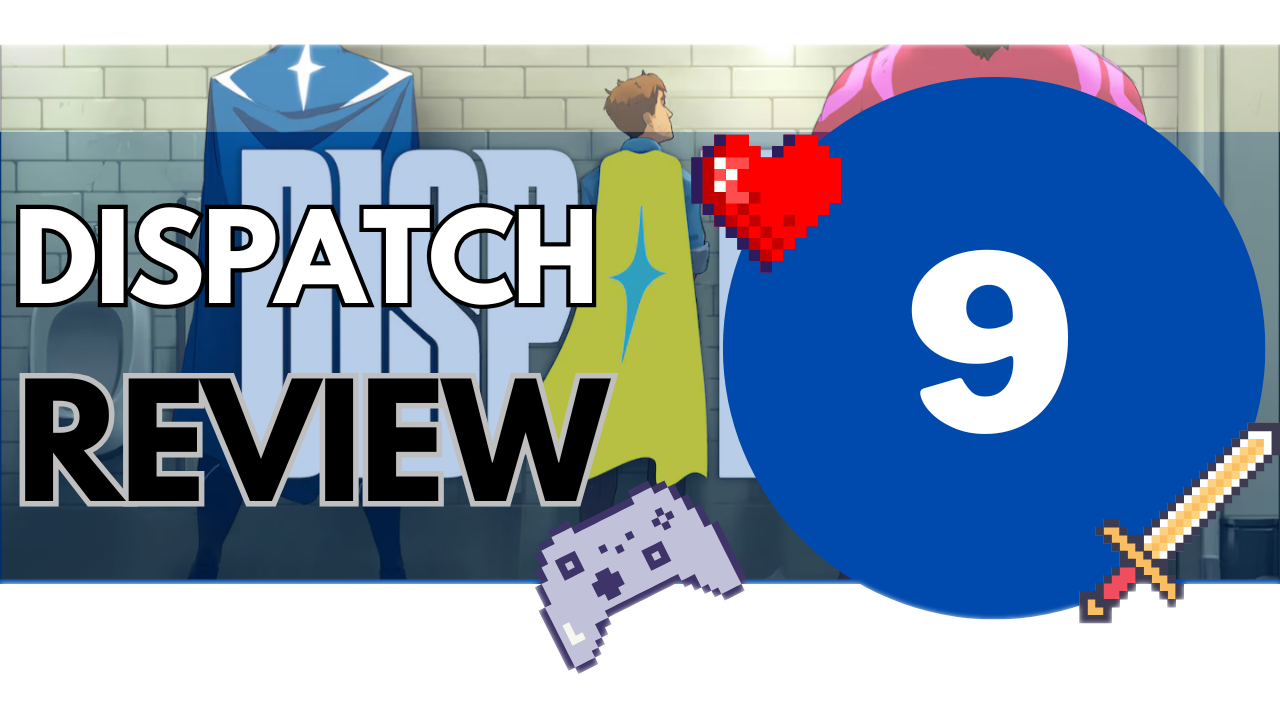Dispatch Review
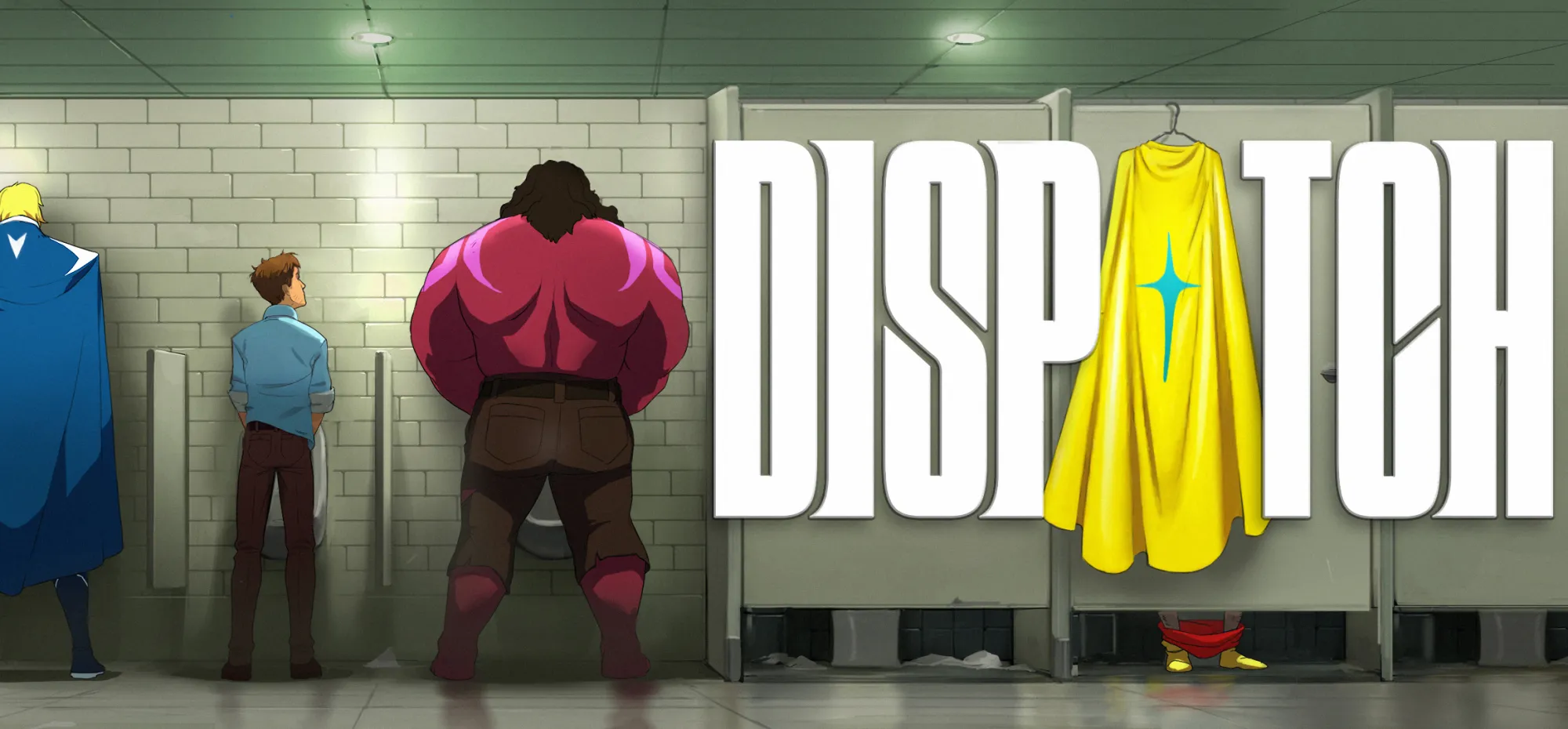
Dispatch hit me in exactly the way I wanted it to. It’s a sharp, cinematic, and character-driven game in the kind of way that reminds me just how much I missed the magic of the original Telltale Games era. AdHoc Studios, made up of former Telltale Games developers, knew exactly what they were building here with this otley crew of heroes... A hybrid between interactive TV and narrative game, and I think they absolutely nailed it.
The opening hooked me right away, with a mix of slick visuals and sharp writing that kind of felt like The Office with a heavy dose of The Boys, wrapped up in a sleek, meta-superhero world. You’re dropped into the shoes of Robert Robertson, a former hero known as Mecha Man, voiced by Aaron Paul, who had his shining career blown to bits after a public disaster with his nemesis, Shroud, voiced by Matthew Mercer. Now he’s heading up the Superhero Dispatch Network, basically the call center and bureaucratic juggernauts responsible for managing Los Angeles’ costumed saviors. It’s part office comedy, part character drama, and somehow both stylish and self-deprecating all at once.
One thing that sets Dispatch apart is that its heroes are far from traditional. The team of heroes you are responsible for, Team Z, are a rehab group filled with ex-villains who are trying to clean up their acts... emphasis on “trying.” They bring chaos, ego, and personality in buckets, which makes every team interaction unpredictable. I stuck mainly with my original group, later adding Phenomaman, then Waterboy and Blonde Blazer near the end of the series. Each character felt alive, and their exaggerated personalities most likely would have been unbearable if the writing hadn’t been so clever and self-aware.
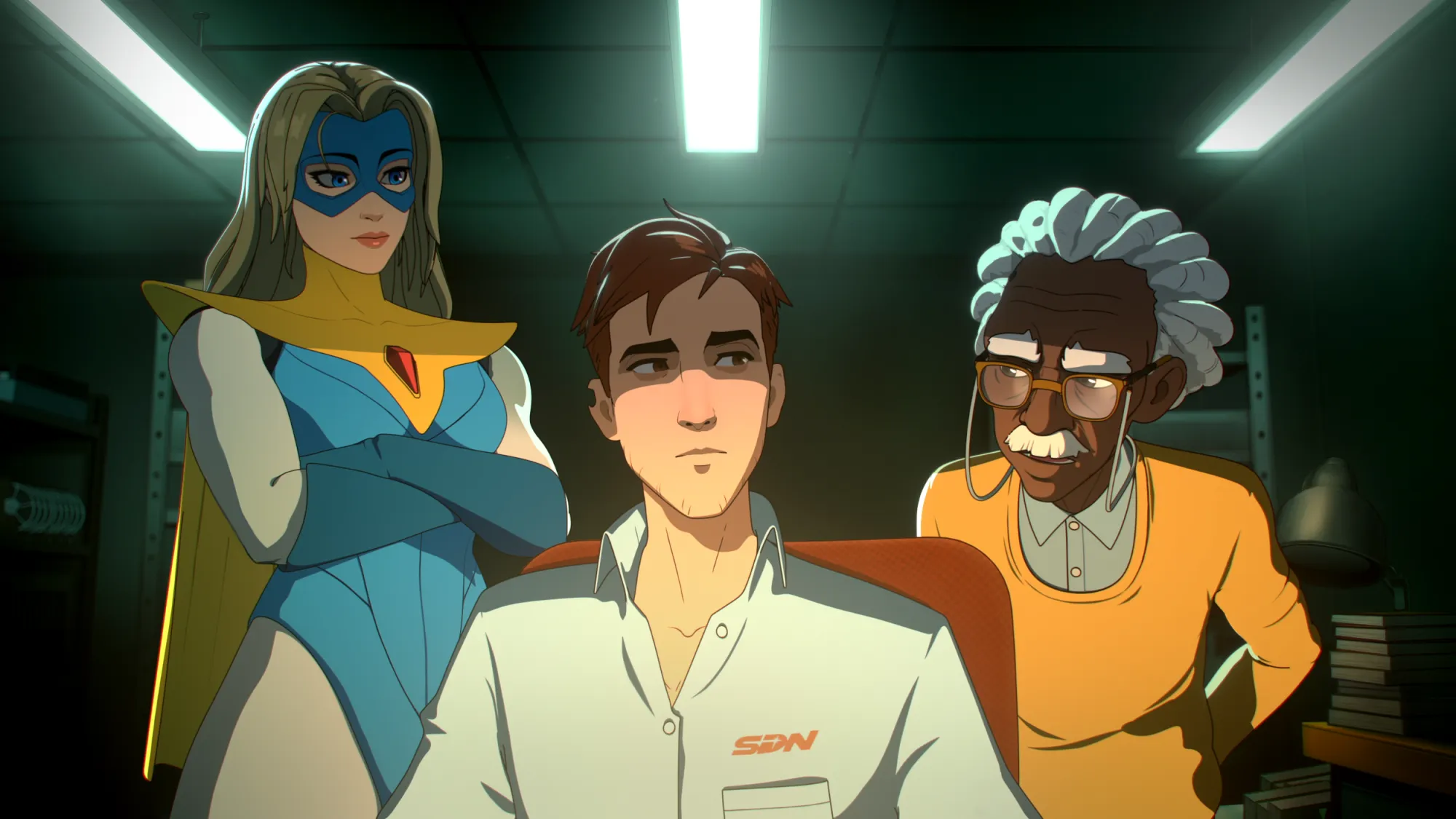
Blonde Blazer, voiced by Erin Yvette, immediately caught my attention, partly because her confidence, style, and her charisma practically radiate through the screen. Invisagirl, voiced by Laura Bailey, had that layered charm that reminded me why she’s one of the best in the industry. And yes, I absolutely fell for both of the love interests, which, unsurprisingly, completely changed my storyline and MAYBE not for the best. This game really knew how to make those little conversational crossroads feel meaningful. The chemistry between characters were seamless, and those moments of indecision were both hilarious and painful in the best way.
Hearing so many members of the Critical Role cast was a huge treat for me, though definitely not a surprise under the circumstances. Laura Bailey, Travis Willingham, and Matthew Mercer had major roles, while names like Marisha Ray, Sam Riegel, Ashley Johnson the rest of the Critical Role main cast popped up across smaller appearances. This game really marked Critical Role’s first big foray into the video game space as co-creators, not just performers. I think their partnership with AdHoc Studio to develop the game/the animated series really paid off. You can feel both their influence and AdHoc’s cinematic precision woven through every single episode.
The episodes themselves are pretty tightly constructed. Eight episodes with each one running roughly 45 minutes, which gives just enough time for multiple big emotional beats without slowing anything down. The pacing is lean, with almost no filler. Unlike traditional point-and-click adventures, Dispatch wastes no time on unnecessary backtracking or overlong puzzles, but still gives you tons of fun and heartful moments. The few interactive elements it has really exist to serve the tension or rhythm of the scenes. It’s all story, and the game knows it.
The actual act of dispatching heroes to crime scenes and crisis' was a really great mechanic within the narrative. Not only was there team resources to consider, but a whole skill and level up system that advances members of your Z Team and builds team synergy. I really enjoyed putting in the shifts and dispatching, often times just taking time to listen to all the little voice lines of the characters interacting. As the episodes progress, the level of intensity definitely amps up - so choose your dispatches wisely!!
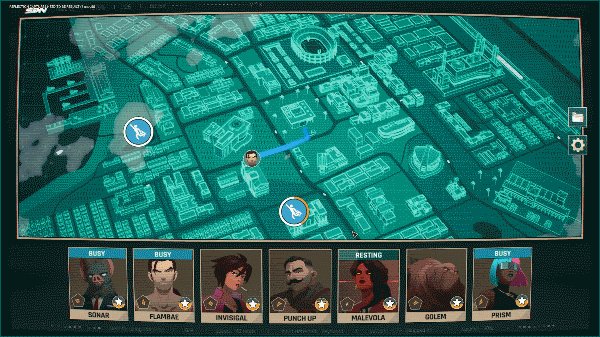
Of course, I have to talk about the hacking segments, my personal kryptonite in this game. Those red orbs felt like someone took Pac-Man’s worst fever dream and turned it into a puzzle. It added just enough frustration to make me yell at my screen BUT not enough to make me quit. I powered through, even if it nearly broke my patience.
I chose to leave the Quick Time Events on for my playthrough, and it made the experience feel more alive. The button prompts weren’t intrusive, and they complemented the action without overwhelming it. There’s also the option to turn QTEs off completely if you’d rather lean into the narrative side, which is a great accessibility feature.
Dispatch doesn’t really punish failure, sorry hard-mode gamers. There’s no game over screens or frustrating resets. Even when you make a questionable call or miss an action, the story moves on seamlessly, weaving your mistakes into the narrative. That’s a deliberate design choice of course, and it works beautifully in my opinion. It gives the whole experience the pacing of an episodic series rather than a stop-and-go adventure, just what the developers are known for. Every choice subtly reshapes character dynamics or changes how others view Robert, creating ripple effects throughout the story.
It’s the playful line between cinematic storytelling and interactive agency that makes Dispatch feel so distinctive. The game lets players decide how involved they want to be; you can either click through every prompt or just relax and enjoy the ride. Its layered approach opens the experience to both gamers and narrative lovers. Still, if you enjoy more of a challenge, it's clear that this balance won’t be for everyone. Those craving deep mechanical complexity might find it too hands-off or easy, but for those drawn to story, it’s a perfect fit.
AdHoc’s visual framing also deserves praise. The camera angles and motion blur effects mirror a cinematic series, which helps the tone they’re going for: half gritty satire, half heart. At times, scenes felt like comic panels snapping to life, each shot filled with bright colours and bold contrasts that underscored the absurdity of hero life.
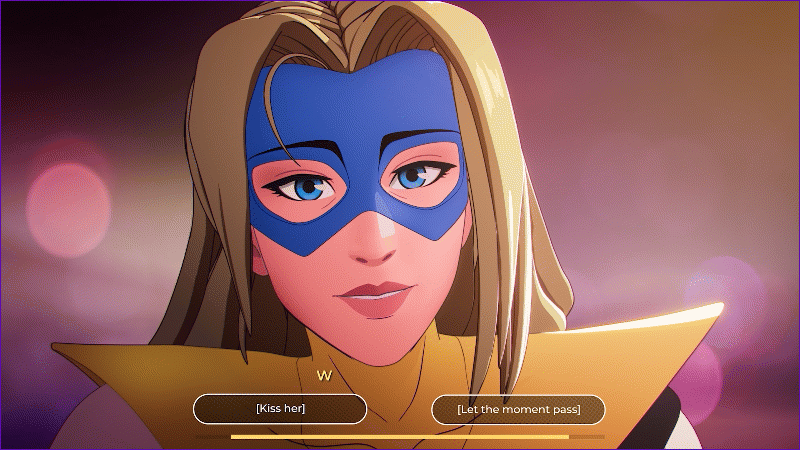
There’s also a streak of self-awareness that keeps the story from getting too heavy. Dispatch constantly pokes fun at hero culture, fame obsession, and the professional burnout behind masked personas. Robert himself is a sarcastic, lovable mess, exactly the kind of protagonist you want to root for... even when he makes questionable choices (especially because we are the ones making them for him). The tension between his heroic past and mundane present keeps things emotionally grounded amid all the chaos.
Across my run, I appreciated how Dispatch balanced humour with genuine emotional weight. The writing never lost its edge or rhythm. Even the smaller team interactions felt engaging, whether it was Flambae’s fiery outbursts or Phenomeman’s introspective moments. Every member of Team Z had depth beyond their gimmicks.
By the time the final credits rolled, it was clear that Dispatch is a product of collaboration between creative studios that understand story, performance, and connection. It’s polished, bold, and aware of exactly what audience it’s speaking to.
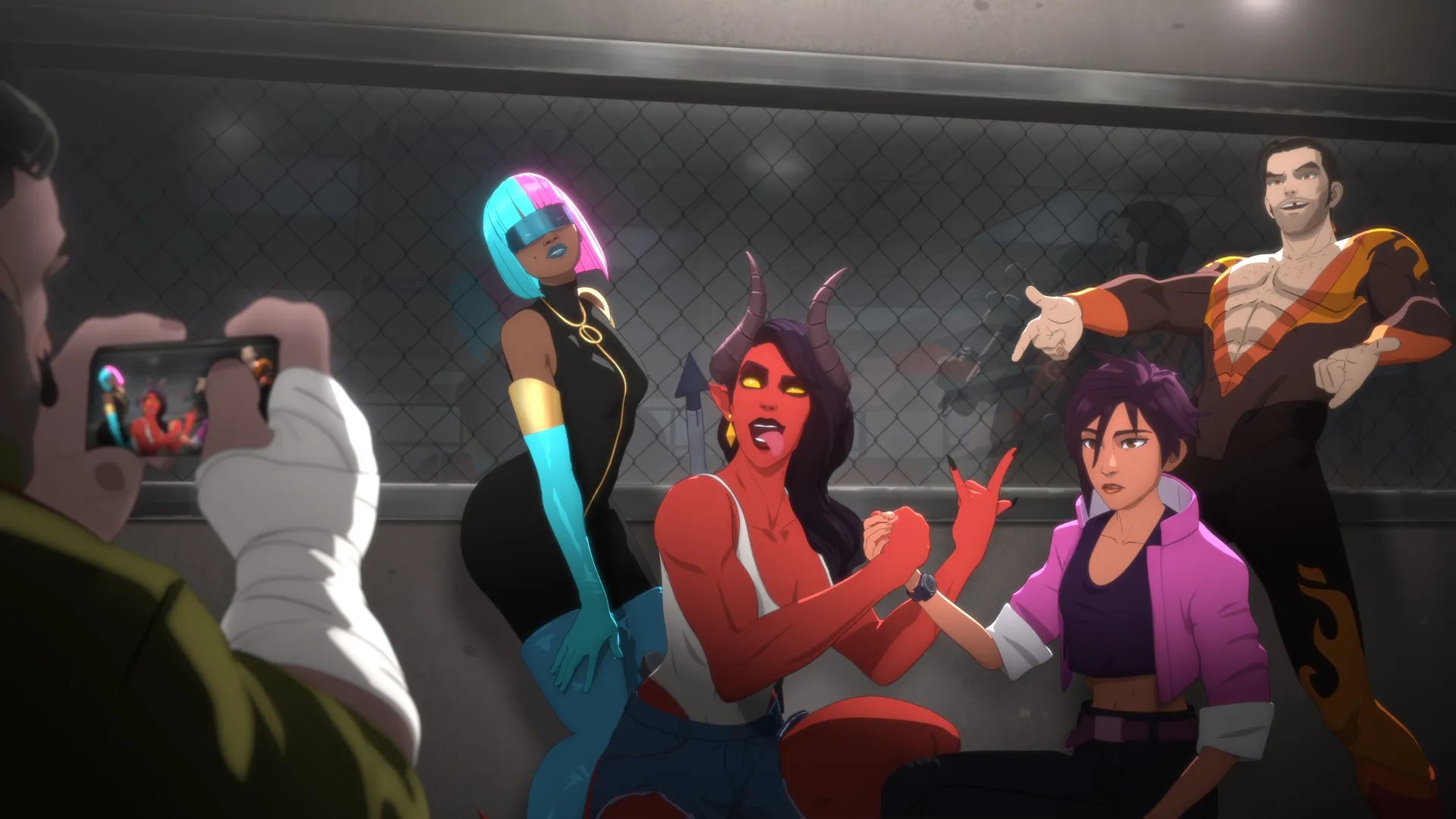
And let’s not forget the internet celebrity touches, YouTube’s Charlie White (Cr1TiKaL) and Seán McLoughlin (jacksepticeye), lending their voices was just the icing on an already star-studded cake. Being one who grew up perpetually online and watching a LOT of YouTube, hearing their familiar tones pop up in the middle of chaos made me smile more than once.
Dispatch isn’t a game about saving the world. It’s about trying to hold it together when everything falls apart, both personally and professionally. It’s weird, stylish, and self-aware in the best way. showing that found family is even more powerful than blood, and that not all heroes wear capes. An interactive series that makes you laugh, think, and sometimes second-guess your choices. If you’ve missed that classic Telltale style of rich storytelling energy that once defined the genre, this one deserves a spot at the top of your playlist. Definitely a recommended narrative play.
